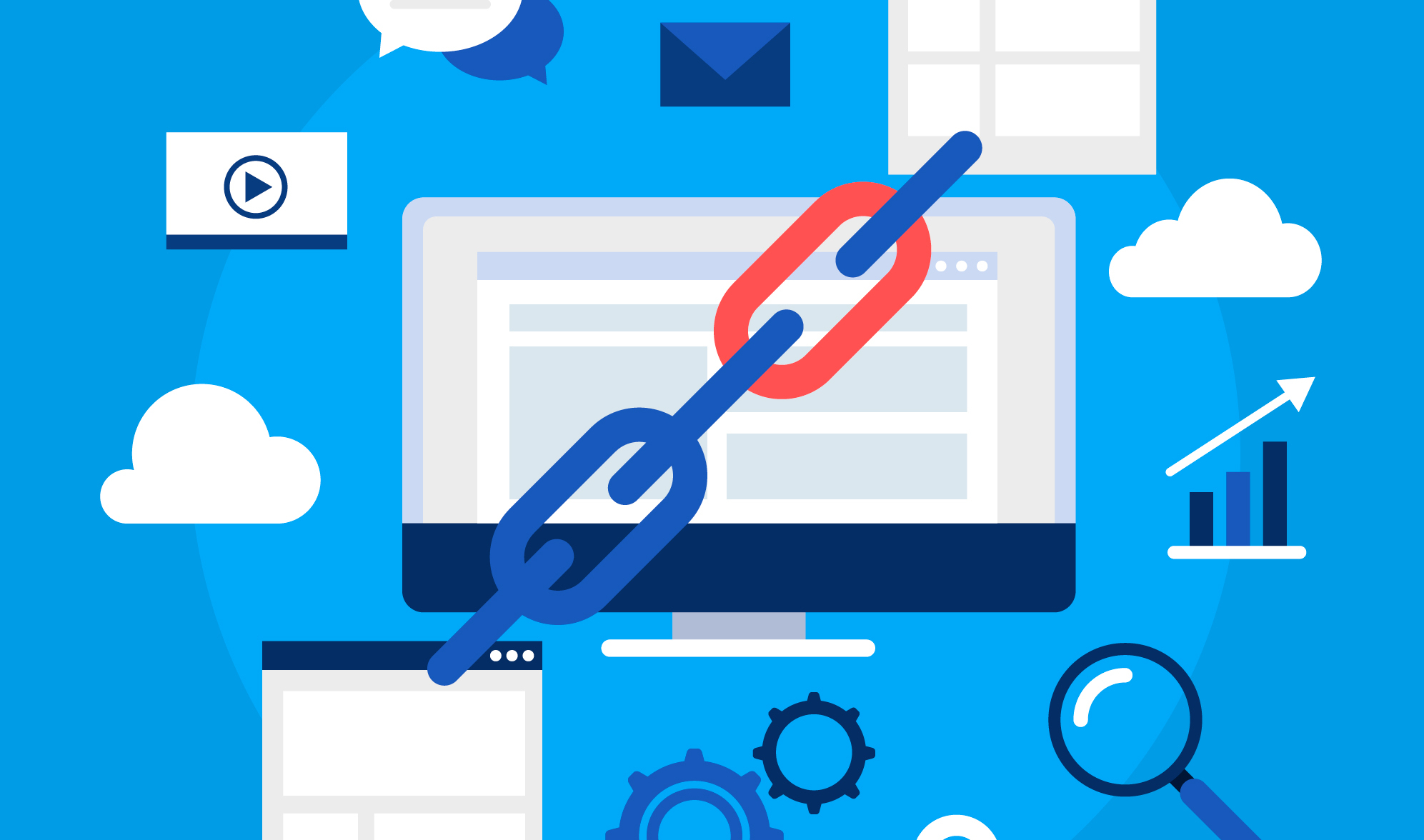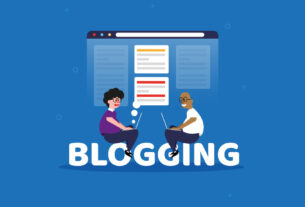One of the key foundations of a good SEO strategy is ongoing link building. It ranks right up there with a strong strategy for content marketing and a strong foundation for on-site optimization. What makes link building crucial? Google is more likely to rank your website higher in search results if there are more high-quality external websites linking to it.
What Is Link Building?
The technique of strategically raising the number of backlinks (or hyperlinks) connecting to a website is known as link building. It is a crucial component of SEO aimed at increasing a website’s visibility in search results.
The following are a few of the most widely used link-building techniques:
Among other things, content marketing, email outreach, building broken links, brand mentions without links, and PR.
Now let’s discuss the specifics. Here is your SEO link-building beginner’s guide.
Related Article: Top 10 Benefits of Digital Marketing for Businesses
What Makes a Good Backlink?
It’s crucial to understand what creates a good (or terrible) link.
Since you can then concentrate on creating links that will raise your Google rankings.
Here’s how to recognize links that are truly worthwhile to create:
1. Authority
The term “authority” in SEO refers to a website’s or webpage’s overall quality. The backlinks may carry more weight if the score is greater.
So a link from a website with a lot of authority is frequently more beneficial. Consequently, it can raise the rank of your page.
A connection from The Wall Street Journal, for instance, will probably have a considerably greater influence than a link from an unidentified blogger.
Not all link chances from websites with low authority should be ignored. They won’t likely have much of an effect, but they also won’t hurt your SEO efforts.
2. Relevance
The relevance of the site matters when it comes to links.
Google’s “how search works” page provides evidence for this.
Strive to obtain links from websites that are related to yours, the page advises. rather than seizing every link chance that presents itself.
Consider that you manage a website that offers SEO consulting.
It would be much better if the link came from a reputable SEO, consultancy, or marketing website.
The more relevant content, the better your SEO.
3. Placement
The location of a link on a page matters. A quality backlink can be found within a web page’s core content.
In reality, Google has a patent that discusses link placement in detail.
It examines various probabilities relating to the possibility that a reader will click on a link based on where it is placed.
The more authority a link holds, the higher the probability (often higher on the page).
those lower in the content of a page, in sidebars, or in the footer might not be as valuable as those higher up.
4. Anchor Text
The text that can be clicked on to open a hyperlink is called an anchor text.
Because it tells users and search engines what a linked page is about, anchor text is significant.
Thus, the better the anchor text, the more pertinent and descriptive it should be.
As an illustration, Google is informed that the page that follows is about coffee storage when the anchor word “how to store coffee” appears.
While generic anchor language like “its website” is useless and provides little context.
Additionally, descriptive and pertinent anchor text can be found in good backlinks.
5. Nofollow vs. Follow
The link attribute “nofollow” instructs search engines not to follow the outbound link.
When website owners want to link to another website but don’t want to suggest any kind of endorsement, they frequently employ them.
The source code for your page uses the nofollow tag. And it appears as follows:
rel=”nofollow”
A link with the “nofollow” tag is also provided here:
<a href=”https://example.com” rel=”nofollow”>Anchor Text</a>
Google claims that nofollow links typically don’t pass authority. However, they can still drive referral traffic and brand recognition.
On the other hand, follow links are simply standard links without any properties. It can convey rating credit and indicate endorsement.
Here is an unattributed follow link:
<a href=”https://example.com”>Anchor Text</a>
There are two other qualities that website owners can apply in addition to nofollow:
- rel=”sponsored” to distinguish links made as a result of advertisements, sponsorships, or other arrangements.
- rel=”ugc” to distinguish links in user-generated content, such as forum posts and comments.
All link properties are viewed as cues to Google’s intended link interpretation.
Why Is Link Building Important?
A page’s ranking might increase when more high-quality backlinks are added to it. One of the most crucial ranking variables used by Google is backlinks.
Backlinks are viewed as “votes of confidence” by Google and other top search engines for the websites receiving them.
Each vote demonstrates how worthwhile, reliable, and practical your content is.
Therefore, link building will almost probably be necessary if you want your sites to appear highly in Google search results. More benefits of link building are explained below.
1. Links give you credibility
Links give your website credibility because they serve as outside indicators of the authority of your domain. Google wants to deliver the most pertinent results to users. It takes ‘authority’ into account in order to accomplish this. The bigger the amount of high-quality links pointing at your website, the more credible it is.
Because it will improve their user experience, reputable publishers will connect to your content, according to Google’s logic. Five quality connections usually trump fifty unhelpful ones, so try to only build links from reputable websites.
Consider the number of sites you are linking back from as well. It is preferable to receive 10 links from 10 separate authoritative domains as opposed to 10 from a single domain.
2. Google uses links to rank your site
Without link development, you are not taking into account more than half of Google’s ranking factors. Even if your website has excellent content, Google will not rank it highly if there are no links pointing to it. Links are crucial to Google’s algorithm. You need more backlinks than your rivals do in order to rank higher than them.
Participate in activities that Google’s algorithms value, such as attempts to establish value and authority. Share your original, distinctive content. Build more reliable, interesting, and relevant links to improve your results.
3. Backlinks will get you an increase in web traffic
One of the strongest strategies for luring relevant audiences from authoritative websites in the business is link development. You may increase traffic from outside sources and web traffic is a solid sign of the health of your website by focusing on themes and audiences that are important to you.
4. Link building leads to higher site metrics and SEO scores
You will be familiar with words like Domain Authority (DA), Domain Rating (DR), Page Rank (PR), Alexa Rank, and others if you are knowledgeable about SEO. You may improve these indicators and the overall health of your website by constructing backlinks. Additionally, visibility and exposure will benefit.
5. Greater revenue opportunities and more sales
More potential for revenue-generating results from increased traffic and better stats. Your website will show up higher in search results, bringing you more prospective clients. This implies that you’ll be able to increase the number of goods and services you sell while also opening up new revenue streams.
6. Improved relationships within your niche
In addition to generating relevant links, following Google’s advice and concentrating on link building inside your industry niche will help you create stronger relationships with key people in your field. This might make it possible to work together in new ways.
7. Help to stand out as an authority voice
Naturally, you want your brand to lead your sector, and persistent link-building can assist you in achieving this. You’ll see increased sales and revenues as a brand leader since you’ll be viewed as a reliable authority. You’ll be the organization that controls conversations in your industry as an authority voice.
8. A continuous source of referral traffic
Once you’ve established a permanent link on a reputable website, you should continue to see consistent traffic coming from that link. In contrast, typical marketing and advertising approaches don’t generate traffic once an advertisement has run its course. Building backlinks of the highest quality will guarantee that your website receives traffic from outside sources over the long run.
9. Increased visibility and exposure
Link building can help with credible lead generation in addition to improving search rankings. For instance, link building will assist you in reaching out to an audience in a new geographic area by increasing awareness there. This can really benefit your company and help to build your reputation as a reliable brand.
10. Lower bounce rates
Bounce rate is described by Google as “The number of single-page sessions.” In other words, the number of site visitors who came to one page before leaving without exploring the remainder of it.
Think about internal connections as well as outbound links when creating links because the combination helps your backlinking appear more natural. Internal links facilitate user navigation of your content while also facilitating Google’s navigation of your website. You can increase time spent on your website and lower bounce rates by making it simpler for users to find the content they’re looking for.
How to Build Links
The majority of link-building techniques and methods fit into one of the following three categories.
1. Ask for Links
When you actively ask a website to link to yours, that is known as asking for links.
You can request that they link to
- Blog posts
- In-depth guides
- Ebooks
- Visual assets (like infographics)
- Case studies
- Original research and data
- And more…
2. Add Links
Going to another website and manually placing your link there is referred to as adding links.
For example, you can manually add links to:
- Social media profiles
- Business directories
- Forums, communities, and Q&A sites (like Quora)
- Blog comments
- User profile pages
One of the simplest and arguably least efficient ways to build links is by manually adding SEO links.
These connections frequently originate from unreliable sources. the kind Google wants to avoid emphasizing too much.
Why?
Mainly because you make them. Furthermore, you are really endorsing yourself.
Which is not what Google considers when determining which websites should rank highest.
Additionally, these links carry less weight than other types of links because they aren’t editorially provided (you don’t ask for them).
These links won’t directly benefit you, but they also won’t do you any harm.
Earning links is the best course of action.
3. Earn Links
Other websites link to yours when you earn links; they do it voluntarily.
And the greatest method to acquire links is to produce excellent content that other people want to connect to.
When someone wishes to link to something as a resource or as beneficial further reading, links naturally occur.
The following are some examples of the various content categories that get links:
- Visual content, such as infographics, charts, and diagrams.
- Original data and research (industry studies, polls, confidential studies, etc.)
- Online tools and calculators
- Detailed instructions and tutorials
Examine the backlink profiles of your competitors to generate fresh article ideas.
Useful Links: Importance of Google Ads Marketing for Small Businesses
Summary
The visibility, authority, and search engine rating of a website can all be significantly improved by link building. Businesses may efficiently increase their online visibility and credibility by building relevant and trustworthy backlinks, which will increase organic traffic and support a strong online presence.
Frequently Asked Questions
Why do I need to build links to my website?
Backlinks are a crucial component of the search ranking algorithm, one of many that make up an efficient SEO strategy. Every link that points to a website serves as a trust signal to Google, thus the more high-quality websites that link to you, the better. These connections serve as endorsements, demonstrating to Google that your website is reliable.
How do you earn links from authoritative media sites?
The best strategy to obtain connections from reputable media websites is to produce outstanding content that relates to a client’s brand and fits into the current news cycle. In order to interact with journalists, your content development plan should be combined with a relationship-based outreach strategy. To get publicity and backlinks for the campaign on reputable media websites, make extensive outreach lists and systematically approach journalists.
Check out how we built links for a CRM software company using information on the top popular Trader Joe’s products in every state to get a better understanding of how this truly works.
How long does a link-building campaign take?
Depending on the structure of the information (such as whether it has an interactive component), the timeframe can vary significantly. A link-building campaign typically takes three months to finish. Ideation, research, and analysis, as well as graphic design and/or development, copywriting, and other tasks, are all part of the content generation process, which takes roughly six weeks. Then it takes an extra four to six weeks to promote the content. It’s common for coverage and backlinks to keep coming in after the original promotion time.



